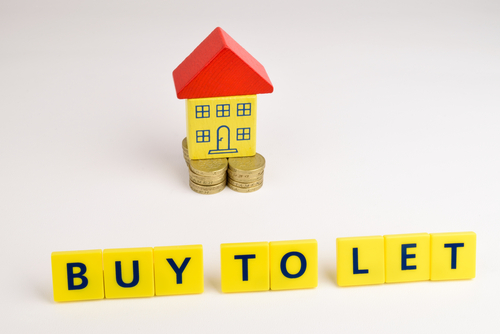Here, José Ramón Gutiérrez Giménez – a Spanish lawyer who specialises in recovering deposits of British buyers in Spanish off-plan properties - talks us through the current situation.
Radically altered finances
“The crisis caused by the coronavirus will radically change the financial situation of many of the buyers who have bought a home off-plan in recent months, since they will not be able to afford the rest of the price,” Gutiérrez Giménez says.
“In the event of non-payment, the developer has the option to terminate the purchase and sale contract due to the buyer's default, then remaining with the amounts that have been agreed in each contract and returning the property to the market. Or they may compel the buyer to pay the rest of the price.”
Many buyers are wondering at the moment how to avoid this, Gutiérrez Giménez adds. “If it is possible to allege that their financial situation has changed radically due to a case of force majeure such as the crisis caused by the coronavirus, it may be possible to resolve the signed sale contract and ask that the seller return the money already paid.”
The answer, he says, will depend on whether a clause was included in the sale contract that allowed the parties to withdraw in the event that the financial situation had changed due to force majeure.
In the vast majority of cases, such a clause will not have been foreseen to protect the interests of the buyers, Gutiérrez Giménez explains. “It is quite probable that it has been foreseen for the protection of the interests of the promoters since they are the ones who are in charge of drafting the terms of the sale contracts.”
But what can buyers who are in this situation do to be able to recover the investment they have made?
“Only in the event that there is a delay in delivery by the promoter do buyers have an opportunity to recover these amounts,” Gutiérrez Giménez advises.
“Law 57/1968 of July 27 that regulated the protection of the amounts paid on account by buyers was repealed by Law 20/2015 of July 14 and this law, incorporating many of the jurisprudential criteria, amended Law 38/99 of November 5, the organisation of the building, with both laws becoming the new legal regulation on the sale of homes off-plan.”
New regulation
This new regulation came into force in 2016, only and exclusively for contracts signed after 2016. “That means that today there is no consolidated jurisprudence that allows us to state with certainty how these assumptions will be resolved. But it is evident that the delay of the seller in the delivery of the home is the best option that the buyer has to recover the amounts invested for the purchase of a home off-plan.”
Gutiérrez Giménez says it will be quite common for such promotions to be delayed due to the crisis thanks to various factors.
“Firstly, because construction activity has been paralysed by legal imperative for 10 days. Secondly, because many of the workers who work in the construction sector have not been able to go to their job because they are on sick leave due to illness derived from Covid-19 and the promoter has not been able to find other workers to replace them.”
“Thirdly, because many of the companies that supply materials to the construction sector have not been able to continue their activity as normal, the developers are finding themselves with a shortage of such materials that will make it impossible for them to deliver their homes in a timely manner.”
He says each contract will have to be analysed in order to verify the agreed clauses and the force majeure assumptions that have or have not been included in the drafting of said contracts.
“With the new legal regulation, all buyers will have a bank guarantee that will guarantee said amounts delivered on account. Therefore, going against the insurer will be the best option for buyers who want to recover their money.”
The new law states that in the event of non-compliance by the developer with the delivery of the home on the specified date, the developer may request an extension from the buyer and postpone the delivery of the home. But the buyer has the power to accept, or not, this extension.
“In the event that the buyer does not accept the extension, if he wants to recover the amounts paid on account, he must reliably request the developer to return said amounts, including applicable taxes and interests, and if within thirty days the promoter has not proceeded to return it, may claim the payment of the corresponding compensation from the insurer. The insurer must indemnify the insured within thirty days from the date the claim is made.”
The insurer, upon receiving the buyer's request, must immediately contact his client (policyholder), to find out whether or not he has previously received the insured's request.
“Regarding the amount of the insurer's compensation, only the amounts that are proven to have actually been paid by the insured to the seller will be compensable,” Gutiérrez Giménez says.
The new legislation, he adds, does not foresee anything about force majeure in case of delay in the delivery of the home and there is ‘still no jurisprudence about these assumptions’.
“So we consider that the most reasonable thing would be to add to the date of delivery of the home the days in which the construction sector has been stopped due to legal imperative - that is, ten days.”
“From here, we recommend requesting the promoter by burofax for the delivery of the amounts delivered on account, plus the legal interest, the day after the delivery date provided in the contract. And give it an extension of ten days due to the coronavirus crisis and, if within 30 days from the end of the extension these amounts have not been returned, contact the insurer for said return. If, in 30 days, it does not return either, initiate against the latter a legal action to claim said amounts.”
Buyer versus insurer
Gutiérrez Giménez says: “From our point of view, in the judicial proceeding initiated by the buyer against the insurer, there is no discussion about whether or not the delay was due to an event of force majeure, unless the term of the guarantee or the surety policy includes any exemption clause in case of force majeure.”
He adds that this discussion must take place in the legal proceeding initiated by the insurer against the developer, when the former has paid the buyer the amounts paid on account and wants to repeat against the developer. This is where the allegation and proof that the breach of the delivery time has been due to an event of force majeure will be used.
“The limitation period of the action of claim of the insured to the insurer is two years from the date that was foreseen in the contract of sale for the delivery of the house,” he says.
“It is very important to emphasise that it is essential to claim the promoter before obtaining the habitation license; otherwise it will not be possible to recover these amounts.”
Gutiérrez Giménez says his law firm will offer a no win, no fee system to all buyers that would like to recover the amounts invested.









.png)










Join the conversation
Be the first to comment (please use the comment box below)
Please login to comment